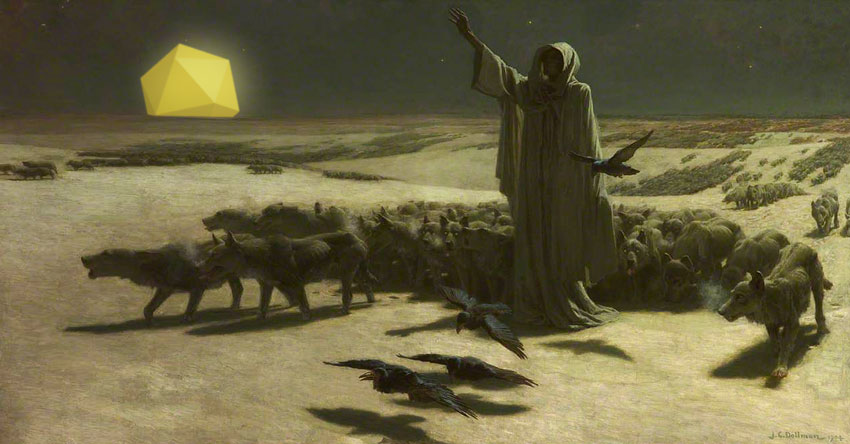Originally posted by David Nett on Twitter, the “I Know A Guy” house rule is intended to give all players a way to influence the story without handwaving away any difficult narrative situation the DM might want to put them in. The comparison that David used was the moment in Empire Strikes Back when Han decided to go to Lando for help, but wasn’t actually sure how Lando would receive him. In other words, the PC knows this person, but they don’t get to control what they do. The text of the rule is as follows:
In any situation (where it makes sense), a PC can declare “I know a guy,” and then quickly sketch that NPC & the relationship. Fewer details are usually better - that leaves room for the DM & PCs to play. Upon declaration, the NPC exists. Then, when the PCs try to interact with the NPC, the player who created that NPC makes a Charisma roll to see how the NPC reacts. Depending upon the situation, the DM may decide advantage/disadvantage applies.
Another Twitter user suggested implementing the rule with uses equal to a PC’s charisma modifier, minimum 1. I don’t like that version, because I think one of the benefits of this rule is to allow players with characters that don’t usually have as much to do in social interactions (read: martials and/or characters with low charisma) to participate in the story, as long as they are engaged and thinking about their characters. I might instead tie it to expending a heroic inspiration, which has some synergy with rewarding a deep connection to one’s character (through good RP) with a new way to shape the story.



It’s interesting to me to see DND players reinventing other systems.
Fate handles this pretty elegantly with fate points and “declare a story detail”. You can spend a fate point to be like “I’ve got a buddy who runs a off the books car shop. He can get us mobile without paperwork”. So long as the table thinks it’s cool and you have the fate point to spend
CofD has merits (think feats) for contacts, allies, and status. That covers some of this well. If you have points in contacts: criminals you can better find someone sketchy for your needs.
All of that said, it’s a fine idea. DND is just really lacking in a lot of systems other games have fleshed out.